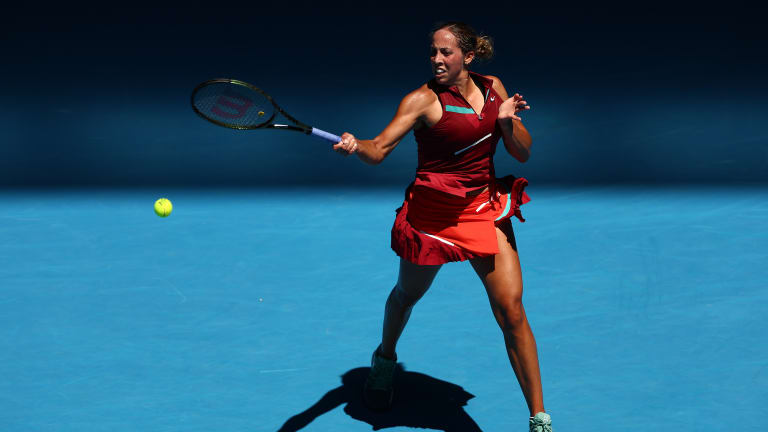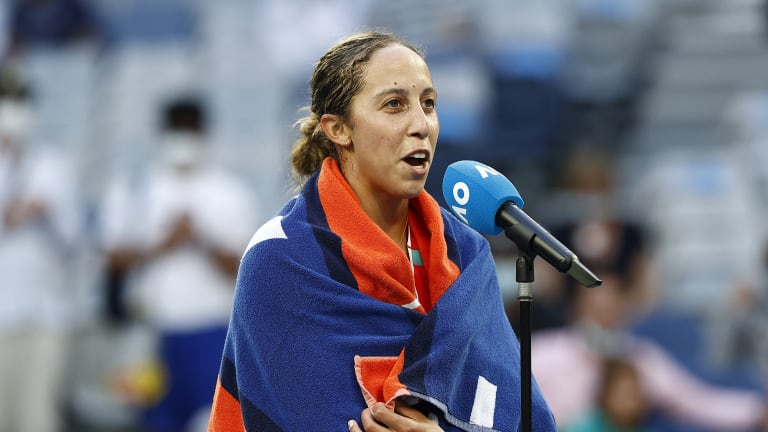Australian Open
After “borderline hate” for the game last year, Madison Keys is trying to better ride the tour’s inevitable up-and-down spirals
By Jan 19, 2022Australian Open
Roger Federer to headline “Battle of the World No.1s” at Australian Open’s inaugural Opening Ceremony
By Dec 11, 2025Australian Open
Australia at Last: Reflections on a first trip to the AO
By Jan 29, 2025Australian Open
Alexander Zverev must elevate his game when it most counts—and keep it there
By Jan 27, 2025Australian Open
Jannik Sinner draws Novak Djokovic comparisons from Alexander Zverev after Australian Open final
By Jan 26, 2025Australian Open
Alexander Zverev left to say "I'm just not good enough" as Jannik Sinner retains Australian Open title
By Jan 26, 2025Australian Open
Jannik Sinner is now 3-0 in Grand Slam finals after winning second Australian Open title
By Jan 26, 2025Australian Open
Taylor Townsend and Katerina Siniakova win second women's doubles major together at the Australian Open
By Jan 26, 2025Australian Open
Madison Keys wins her first Grand Slam title at Australian Open by caring a little bit less
By Jan 25, 2025Australian Open
Henry Patten, Harri Heliovaara shrug off contentious first set to win Australian Open doubles title
By Jan 25, 2025After “borderline hate” for the game last year, Madison Keys is trying to better ride the tour’s inevitable up-and-down spirals
The hard-hitting American began 2022 with a title run in Adelaide, and hasn't dropped a set in her two victories at the Australian Open.
Published Jan 19, 2022
Advertising
Advertising

Keys has been known to hit herself out of a match; finding the balance between power and patience is a key to her success.
© Getty Images
Advertising

“Tennis is one of those sports that as long as you keep going forward with the right mindset and you keep working hard, things can change very easily.”
© Getty Images